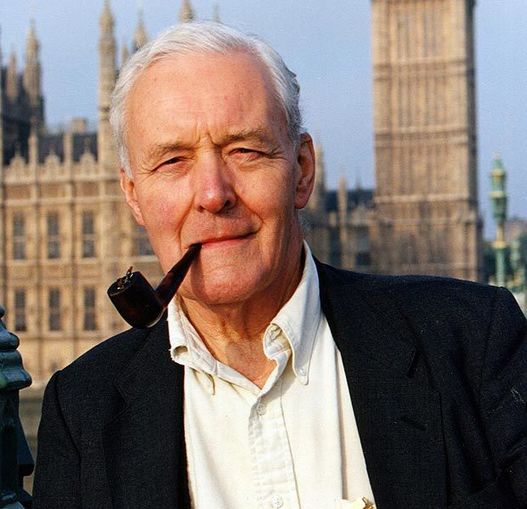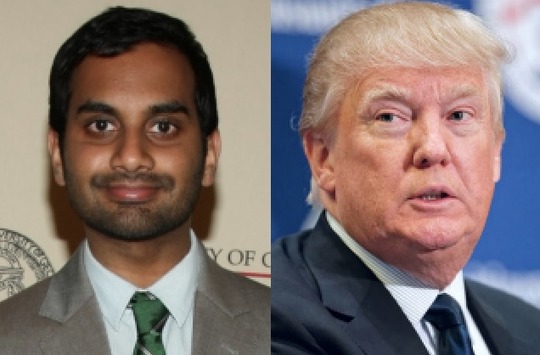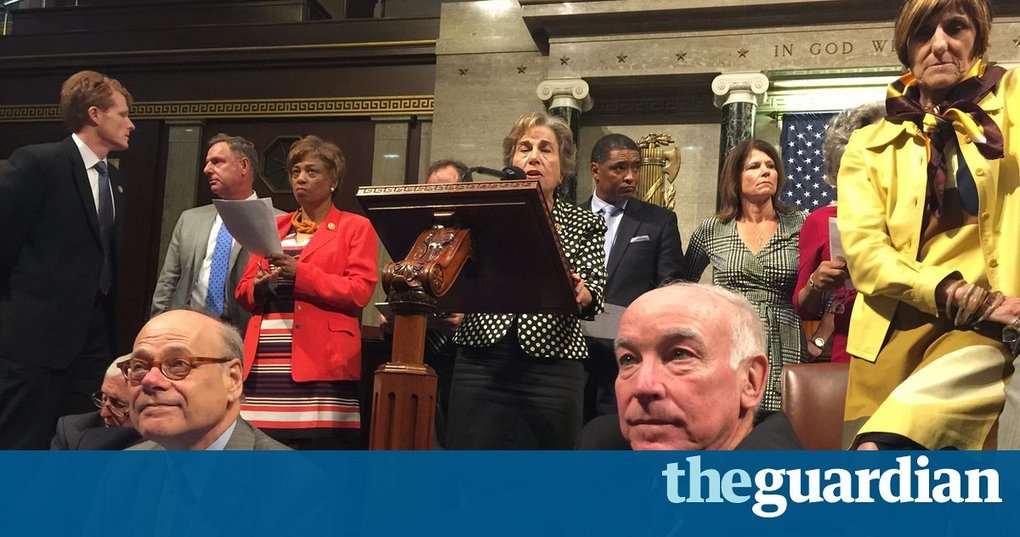
Jonathan Cook
Mondoweiss
The common wisdom, following Britain’s referendum result announced on Friday, holds that the narrow vote in favor of leaving the European Union – so-called Brexit – is evidence of a troubling return across much of Europe to nationalism and isolationism. That wisdom is wrong, or at least far too simplistic.
The outcome, which surprised many observers, attests to the deeply flawed nature of the referendum campaign. That, in turn, reflected a key failing of modern politics, not only in Britain but in most of the developed world: the re-emergence of an unaccountable political class.
The most distinctive feature of the campaign was the lack of an identifiable ideological battlefield. This was not about a clash of worldviews, values or even arguments. Rather, it was a contest in who could fearmonger most effectively.
The Brexit leadership adopted the familiar “Little Englander” pose: the EU’s weak border controls, the influx into the UK of East Europeans driving down wages, and the threat of millions of refugees fleeing crisis-zones like Syria were creating a toxic brew that emptied of all meaning the UK’s status as a sceptred isle.
The heads of the Remain camp traded in a different kind of fear. Brexit would lead to the flight from the UK of capital and its associated economic elite. Sterling’s collapse would bankrupt the country and leave pensions worthless. Britain would stop being a player in the modern global economy.
In addition, those favoring the EU had another card up their sleeve. They accused Brexit’s supporters of being racists and xenophobes who preferred to blame immigrants than admit their own failings for their economic misfortune.
Pandora’s box
Set out like this – and it is hard to over-estimate how simplistically confrontational the arguments on both sides were – it is easier to understand why the Brexit camp won.
The EU referendum opened up a Pandora’s box of division rooted in class that many hoped had been closed in the post-war period with the temporary advance of the welfare state and social democratic policies.
However inadvertently, the Remain leaders championed the cause of a wealthy elite that included the bankers and hedge fund managers who had until recently been publicly vilified for their role in the financial crash of 2008.
That was a slap in the face both to the working class and to much of the middle class who paid the price for the economic elite’s reckless and self-serving profligacy and its subsequent demands for gargantuan bail-outs.
Those favoring the EU – who typically suffered least from the 2008 crash – only added insult to injury by labeling its victims as “racists” for demanding reassurances that politicians would again serve them, not an economic elite.
Economic pillage
There is an argument to be made that the EU is not chiefly responsible for the economic problems faced by British workers. Since the rise of Margaret Thatcher in the late 1970s, British figures from across the political spectrum have grown deeply in thrall to a neoliberal agenda that has clawed back hard-won workers’ rights.
It is revealing that some of the super-rich – including media moguls – lobbied for an exit. They clearly believe that, outside the EU, they will be able to rape and pillage the British economy at even greater speed, not constrained by EU regulations.
Nonetheless, the EU has become the fall guy for popular resentment at the neoliberal consensus – and not without good cause.
It is seen, correctly, as one of the key transnational institutions facilitating the enrichment of a global elite. And it has become a massive obstacle to member states reforming their economies along lines that do not entail austerity, as the Greeks painfully discovered.
This is the deeper cause of the alienation experienced by ordinary Brexiters. Unfortunately, however, no one in the leadership of either the Leave or Remain camps seriously articulated that frustration and anger or offered solutions that addressed such concerns. The Remainers dismissively rejected the other side’s fears as manifestations of racism.
This played straight into the hands of the Brexit leadership, led by far-right figures in the Conservative party like Boris Johnson and Michael Gove, as well as Nigel Farage of the Ukip party, Britain’s unwholesome version of Sarah Palin.
This millionaires’ club, of course, was not interested in the troubles of Britain’s new precariat – a working class permanently stuck in precarious economic straits. They only wanted their votes. Stoking fears about migrants was the easiest way to get them – and deflect attention from the fact that the millionaires were the real culprits behind ordinary people’s immiseration.
No love for EU
Support for Brexit was further strengthened by the lackluster performance of the heads of the Remain camp. The truth is that the two main party leaders, who were invested with the task of defending the EU, were barely persuaded of the merits of their own cause.
Prime minister David Cameron is a long-time Euro-sceptic who privately shares much of the distrust of the EU espoused by Johnson and Gove.
And the recently elected leader of the Labour opposition, Jeremy Corbyn, is no lover of the EU either, though for reasons very different from the right’s.
Corbyn is part of Labour’s old guard – relics of a democratic socialist wing of the post-war Labour party that was mostly purged under Tony Blair’s leadership. Labour under Blair became a lite version of the Conservative party.
And here we reach the crux of the problem with the referendum campaign.
There was a strong and responsible leftwing case for Brexit, based on social democratic and internationalist principles, that Corbyn was too afraid to espouse in public, fearing that it would tear apart his party. That opened the field to the rightwing Brexit leadership and their ugly fearmongering.
Left’s case for Brexit
The left’s case against the EU was frequently articulated by Tony Benn, a Labour minister in the 1960s and 1970s. At an Oxford Union debate in 2013, a year before he died, Benn observed: “The way that Europe has developed is that the bankers and multi-national corporations have got very powerful positions and, if you come in on their terms, they will tell you what you can and can’t do – and that is unacceptable.
“My view about the European Union has always been, not that I am hostile to foreigners but that I’m in favor of democracy. … I think they are building an empire there.”
Nearly 40 years earlier, in 1975, during a similar referendum on leaving what was then called the EEC, Benn pointed out that what was at stake was Britain’s parliamentary democracy. It alone “offered us the prospect of peaceful change; reduced the risk of civil strife; and bound us together by creating a national framework of consent for all the laws under which we were governed.”
His warning about “civil strife” now sounds eerily prophetic: the referendum campaign descended into the ugliest public political feuding in living memory.
For Bennites and the progressive left, internationalism is a vital component of the collective struggle for the rights of workers and the poor. The stronger workers are everywhere, they less easily they can be exploited by the rich through divide-and-rule policies.
Globalisation, on the other hand, is premised on a different and very narrow kind of internationalism: one that protects the rights of the super-rich to drive down wages and workers’ rights by demanding the free movement of labor, while giving this economic elite the freedom to hide away their own profits in remote tax-havens.
Globalisation, in other words, switched the battlefield of the class struggle from the nation state to the whole globe. It allowed the trans-national economic elite to stride the world taking advantage of every loophole they could find in the weakest nations’ laws and forcing other nations to follow suit. Meanwhile, the working and middle classes found themselves defenseless, largely trapped in their national and regional ghettoes, and turned against each other in a global free market.
Corbyn played safe
Corbyn could not say any of this because the Labour parliamentary party is still stuffed with Blairites who fervently support the EU and are desperate to oust him. Had he come out for Brexit, they would have had the perfect excuse to launch a coup. (Now, paradoxically, the Blairites have found a pretext to stab him in the back over the Remain camp’s failure.)
Instead Corbyn headed for what he thought would be the safe, middle ground: the UK must stay in the EU but try to reform it from within.
That was a doubly tragic mistake.
First, it meant there was no prominent figure making a progressive case for Brexit. Many ordinary voters know deep in their hearts that there is something profoundly wrong with the neoliberal consensus and global economic order, but it has been left to the far-right to offer them a lens through which to interpret their lived experience. By stepping aside, Corbyn and the real left allowed Johnson and Farage to forge the little Englander case for Brexit unchallenged.
Second, voters are ever more distrustful of politicians. Cameron and Corbyn’s failure to be candid about their views on Europe only underscored the reasons to assume the worst about the political class. In a choice between the uncomfortable and perfunctory posturing of the Remain leaders and the passionate conviction of Johnson and Farage, people preferred fervor.
Compromised politics
This is a much wider phenomenon. Corbyn’s appeasement of the Blairites is another example of the deeply tainted, lesser-evilism politics that requires Bernie Sanders to tell his supporters to vote for Hillary Clinton, warmonger-in-chief to the military-industrial complex, to stop a loud-mouth billionaire thug, Donald Trump.
Increasingly, people are sick of these endless compromises that perpetuate and intensify, rather than end, inequality and injustice. They simply don’t know what levers are left to them to change the ugly reality in front of them.
The result is an increasingly febrile and polarised politics. Outcomes are much less certain, whether it is Corbyn becoming Labour leader, Sanders chasing Clinton all the way to the Democratic convention, or Trump being on the cusp of becoming US president.
The old order is breaking down because it is so thoroughly discredited, and those who run it – a political and economic elite – are distrusted and despised like never before. The EU is very much part of the old order.
There is a genuine question whether, outside the EU, the UK can be repaired. Its first-past-the-post electoral system is so unrepresentative, it is unclear whether, even if a majority of the public voted for a new kind of politics, it could actually secure a majority of MPs.
But what is clear to most voters is that inside the EU it will be even harder to fix the UK. The union simply adds another layer of unaccountable bureaucrats and lobbyists in thrall to faceless billionaires, further distancing ordinary people from the centers of power.
Disturbing trend for Israel
Finally, it is worth noting that the trends underpinning the Brexit vote should disturb Israeli prime minister Benjamin Netanyahu, just as they already are troubling the political class in Europe and the US.
Like the EU, Israel too is vital pillar of the old global order. A “Jewish homeland” emerged under British protection while Britain still ran an empire and saw the Middle East as its playground.
After the European colonial powers went into abeyance following the Second World War, the role of patron shifted to the new global hegemon in Washington. The US has endlessly indulged Israel, guarded its back at the United Nations, and heavily subsidised Israel’s powerful military industries.
Whereas the US has propped up Israel diplomatically and militarily, the EU has underwritten Israel’s economic success. It has violated its own constitution to give Israel special trading status and thereby turned Europe into Israel’s largest export market. It has taken decades for Europe to even acknowledge – let alone remedy – the problem that it is also trading with illegal Jewish settlements in the West Bank.
If the EU starts to unravel, and US neoliberal hegemony weakens, Israel will be in trouble. It will be in desperate need of a new guarantor, one prepared to support a country that polls repeatedly show is mistrusted around the world.
But more immediately, Israel ought to fear the new climate of polarised, unpredictable politics that is becoming the norm.
In the US, in particular, a cross-party consensus about Israel is gradually breaking down. Concerns about local national interests – of the kind that exercised the Brexiters – are gaining traction in the US too, as illustrated last year by the fallout over Israel’s stand-off with the White House over its Iran agreement.
Distrust of the political class is growing by the day, and Israel is an issue on which US politicians are supremely vulnerable. It is increasingly hard to defend Congress’ historic rock-solid support for Israel as truly in American interests.
In a world of diminishing resources, where the middle class is forever being required to belt-tighten, questions about why the US is planning to dramatically increase its aid to Israel – one of the few economies that has done well since the 2008 crash – are likely to prove ever-more discomfiting.
In the long term, none of this bodes well for Israel. Brexit is simply the warning siren.
Source: mondoweiss.net






